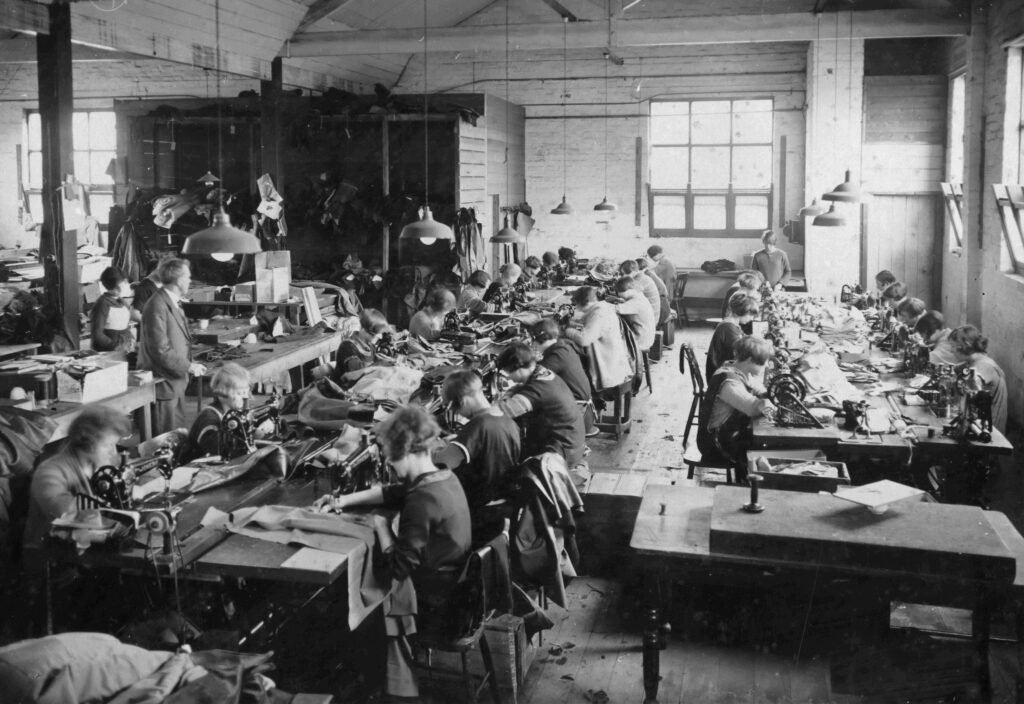
THE END OF THE SIX-DAY WORKWEEK IN CZECHIA: A HISTORIC SHIFT
The structure of the workweek has evolved significantly over time, influenced by economic needs, cultural traditions, and labor reforms. In Czechia, the transition from a six-day to a five-day workweek was a gradual process that culminated in March 1989. This shift, now taken for granted, was a major milestone in labor history. While discussions today focus on the possibility of a four-day workweek, it is important to reflect on how Czech workers once navigated a much longer schedule.
A Turning Point in Czech Labor History
On March 11, 1989, Czechs worked on a Saturday for the last time as part of a standard six-day workweek. This moment marked the culmination of a decades-long transition to a five-day schedule, a norm now taken for granted. While modern discussions focus on reducing the workweek to four days, older generations still remember when Saturday was just another workday.
A Tradition Rooted in Religion and Culture
For much of the 20th century, manual laborers in Czechoslovakia followed a six-day work schedule, with only Sundays reserved as a rest day. This practice was deeply embedded in historical and religious traditions. The biblical commandment to work six days and rest on the seventh influenced labor norms across both socialist and capitalist states. Before 1956, Czechoslovakian workers had uniform eight-hour workdays from Monday to Saturday. That year, the government made the first adjustment, reducing Saturday hours to six, signaling the beginning of a shift toward a more balanced work-life structure.
Gradual Steps Toward Labor Market Liberalization
The transition toward a five-day workweek accelerated in the 1960s. In 1966, every fourth Saturday was designated as a day off, though this change was short-lived. By January 1967, workers received every second Saturday off, and in September 1968, a five-day workweek was officially adopted. This transformation was seen as a major “labor revolution.”
However, the six-day workweek was not exclusive to socialist regimes. Western countries also maintained similar schedules well into the 20th century. Austria, for example, only phased out its six-day workweek in the mid-1970s. Discussions about reducing working days in Czechia had been ongoing since the 1950s, but economic constraints delayed implementation. Some even proposed making Monday the second day off instead of Saturday, but tradition prevailed.
The Slow Death of the Working Saturday
Despite the formal introduction of a five-day workweek, occasional working Saturdays persisted. The government sometimes mandated “special working Saturdays” to compensate for public holidays and ensure a stable number of annual workdays. These extra shifts, called “subotniky” (a Soviet term), were met with mixed reactions. In some regions, they earned local nicknames, such as “mamulovky” in Ostrava, named after Communist Party official Miroslav Mamula.
By the 1980s, working Saturdays had become increasingly rare as many companies found them economically inefficient. Productivity on these days was lower than expected, and schools started using them for alternative activities like military exercises. The final working Saturday on March 11, 1989, marked the definitive end of this practice. Since then, the five-day workweek has been deeply ingrained in Czech culture. One of its lasting effects has been the rise in weekend leisure activities, such as the national passion for countryside cottages and rural getaways.
Is a Four-Day Workweek the Future?
With the six-day workweek long gone, discussions have now shifted toward reducing the standard workweek to four days. Some companies, like SAB Finance, have experimented with shorter schedules, reporting positive results. A survey by Ipsos revealed that 70% of Czech employees support the idea, but only 20% have experienced it firsthand. Economist Michal Skořepa notes that while John Maynard Keynes once predicted shorter workweeks, most developed nations still average 40 hours per week. The Netherlands, with an average of 32.2 hours per week, comes closest to this vision.
Despite international trends, many Czech businesses remain skeptical. Concerns over potential productivity losses hinder widespread adoption. However, as global labor trends continue to evolve, Czechia may eventually embrace a shorter workweek, just as it once transitioned away from the six-day model.
Sources: https://www.expats.cz/




